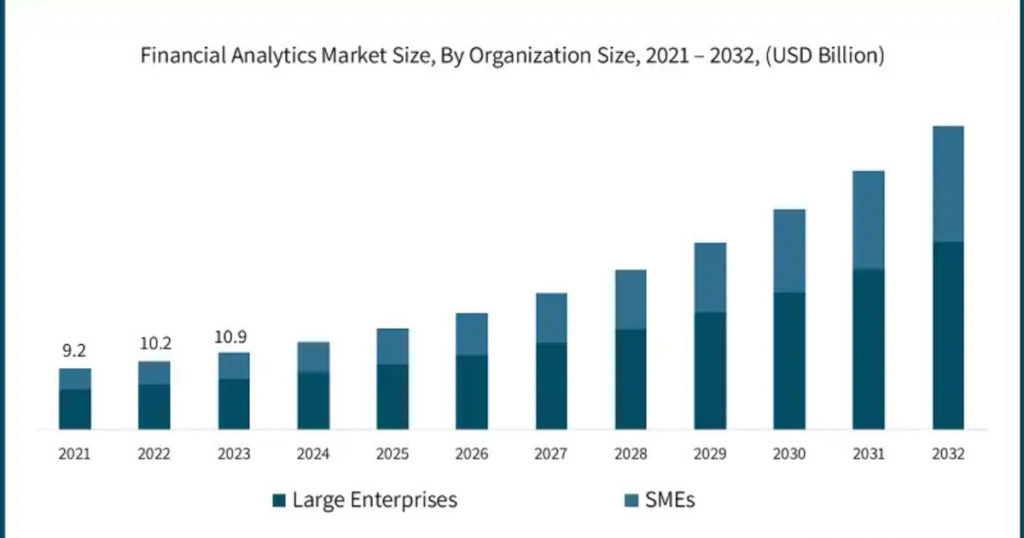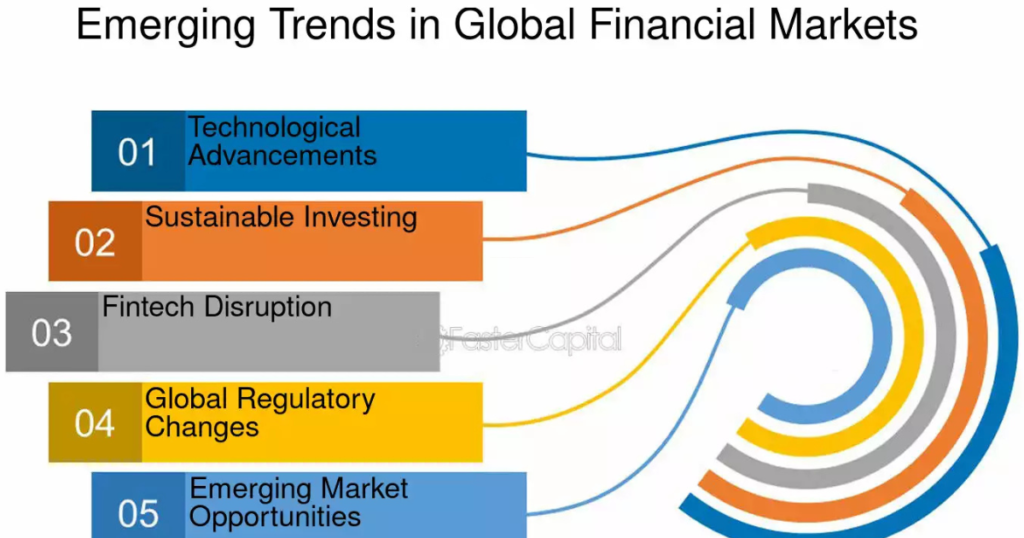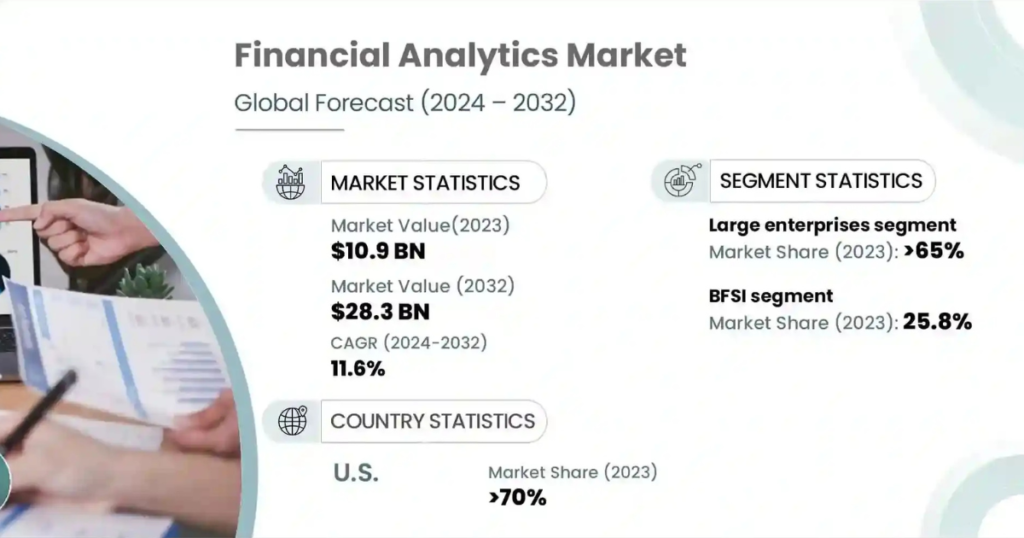The stock market is fast evolving every day, influencing world business news. Investors, stock market analysts, and financial advisors are always watching to discover what the latest trends are-the same influencing their investment decisions. Indicators relative to the economy, technological revolution- any number of things can affect the stock market as to where it goes. This paper shows market analysis, more about stocks, and advice for investments as a forewarning of things to come for years.
What Are the Recent Trends of the Stock Market?
How are Present Economic Indicators Affecting the Market Trends?
Economic indicators have significantly affected stock market trends these past months. Rising inflation and varying interest rates have made the investors rethink their strategy. For instance, the S&P 500 index registered substantial fluctuations as economic data flows into the market. Consumer spending behaviors and employment growth statistics have all played a big part in forming investors’ opinions, as affirmed by financial news agencies including New York Times. As inflation continues to dictate consumer purchasing power, there is more and more pressure on companies to act. The investor climate is rather cautious as it’s just any complex market subject to change.
What Role Does Technology Play in Today’s Stock Market?
Technology has quietly crept up as a dominant force in the stock market and market trends today are fueled by companies such as OpenAI and Tesla under the leadership of Elon Musk. The introduction of AI to trading platforms has transformed the way traders analyze market data and make trades. With such advancements, traders could speedily react to an ever-changing market and ride trends before they die out. In fact, the tech sector remains an investment favorite for many investors who see it as potentially capable of bringing high returns. One cannot overstate, generally, how much technology has permeated into a stock’s performance amidst changing times.
How Do Investors React to Inflation and Interest Rates?
Inflation and interest rates are trending topics, and many investors are looking for ways to shield their portfolios from them as their effect gets broad exposure. As inflation rises and mortgage rates fluctuate, investors are becoming more selective in their asset allocation. Some look for defensive stocks-ones that are less volatile in economic downturns,some investigate alternative investment choices. Unrest over interest rates-especially as the Fed pivots and maneuvers its monetary policy-has cultivated a wait-and-see attitude among investors. Amid this complexity, stock quotations give salient insights valuable to investment decisions, making it important for investors to keep their ears to the ground.
They are considered to influence investment choice.
How to Use the Quote Finder?
Effective use of a quote finder can greatly enhance an investor’s ability to make informed investment decisions. Investors need to familiarize themselves with the different platforms for real-time stock market readings so that they can thereby do justice to proper market movements. By allowing alerts on price changes, an investor can respond as quickly as possible when there are price changes of a stock. Learning how to use quote finders allows traders to see trends over time that tell a lot about the performance of specific companies and sectors. This tool becomes essential in a complex market that sees timely information mean big wins or losses.

A Brief Also Useful Interpretation of What Stock Quotes Can Do for You.
Interpreting stock quotes means learning essential parts of this market, such as stock price, volume, and market capitalization. Investors check how prices change over time, especially of late, for signals of broader market moves. Such as, suddenly heightened trading volume often indicates renewed investor interest, often leading to rising prices. The bid-ask spread should provide some insight into market liquidity and investor sentiment. Having honed the skill to interpret stock quotes comes with increased possibility of winning at any market game.
What Are the Main Components of a Stock Quote?
More detailed descriptions of all these components usually included in a stock quote are the symbol of the stock, the last price of the stock traded, the price change for a stock during the trading session, the percentage gain or loss, the trading volume, and other parameters such as market capitalization. These would assist an investor in making an informed decision. The last price describes the last transaction established as the stock price, while the price change indicates how much the stock has gone up or down in the trading session. The volume is the total shares traded, which can denote market interest. Market capitalization, calculated by multiplying price per share by the number of shares outstanding, gives an idea of the size and stability of the company. Knowing well these components helps investors effectively evaluate stocks.
What Is the Role of Tariffs in Affecting Global Business News?
How Are Reciprocal Tariffs Related to Stock Market Performance?
Tariffs, perhaps more than any other development in the global arena currently, define the world of business news by their very nature in the way they affect market performance. The imposition of reciprocal tariffs can increase production costs for companies importing goods. A side consequence is probably going to be felt on profit margins and stock values, creating ripples across various industries. Investors shall remain vigilant as the potential for escalation of trade tensions can mean another bout of volatility for markets. Fresh movements in tariff policies can flip investor sentiment around a lot and keep up with the global trade news and their effects on specific stocks and sectors.
What Are the Implications of Tariffs for Technology Stocks?
Technology stocks are one of the few sectors strongly influenced by tariff-related news, having the lead in market movements. Companies relying on global supply chains for their operations, e.g., Apple and Microsoft, might find the prospect of higher tariffs on components imported from foreign countries to threaten an increase in costs. This translates to higher prices in the hands of the consumer, in turn, affecting sales and revenues. With the current administration already facing contorted international trade relations, technology could become quite volatile. Investors have to analyze how tariff policies would affect the tech sector, vis-a-vis the ongoing competition with China.
How Is the Current Administration Dealing with Tariff Policies?
While the administration’s approach to tariff policies remains under ongoing development, corporate and stock market news continues to generate rippling effects. As trade negotiations play out, the administration seeks to align national-business interests with the continuing need for international cooperation. Investors are watching developments closely, with any change in tariff regulations capable of having a very strong impact in changing market dynamics. The ability to adjust to evolving policies is going to be crucial for a wider range of companies, and, by extension, their investors should factor how these changes might affect their portfolios and overall market performance.
The Federal Reserve Is influencing Stock Market News.
Types Of Recent Cuts Made By The Fed And Its Implication On Investors
The recent cuts made by the Federal Reserve have rocked the financial news and triggered investment strategies across the board. By lowering interest rates, the Fed wants to develop more activity and make borrowing less expensive for consumers and businesses alike. This can lead to more investments and spending, which benefit the stock market performance. Investors also need to decipher how a longer time span of low rates would have implications for the overall economy. This means an increase in inflationary pressure. For that, it is very important that the investors know about the steps taken by the Fed in order to function well through such developments.

How Do Interest Rates set by the Fed Affect Stock Prices?
Interest rates set by the Federal Reserve are an important determinant of stock prices. Increases in stock prices are usually observed with lower rates since companies are able to borrow easily for their expansion and the development of new products and services. Contrarily, higher rates are likely to pressurize prices with increased costs and diminished profits for the business. Investors would have to keep a close watch on the Fed’s announcements and inflation forecasts as these can impact their portfolios. Understanding the relationship between interest rates and stock performance is essential for making informed investment decisions.
What Ultimately Should Investors Expect from the Fed by 2025?
By 2025, investors should anticipate a shift or two in the stance of monetary policy as the Federal Reserve reacts to the conditions on the ground. Economists forecast that Fed will increase interest rates gradually as inflation stabilizes and return to a more conservative investment environment. In having this change, investors should plan for how these changes will impact their sectors and asset classes; they need to rethink their strategies accordingly. Investors should stay tuned into the Fed’s outlook and economic indicators regarding the evolving scenery of the economy and investment options.
What factors should be taken into account for retirement planning against the backdrop of shifting markets?
How might developments in the market influence retirement investment strategies?
Market trends are crucial for developing retirement investment strategies. As current stock market moves are evident, the investors must adjust their portfolios to achieve long-term financial stability. For example, a portfolio with a balance of adjustable mix of stocks, bonds, and alternatives will mitigate the effects of market volatility. Financial advisors state that a regular review and structural change of retirement strategies are mandatory to stay abreast with the current market trends, therefore ensuring that investors continue to align with their long-haul goals. To make the best choices for a secure future, it is very important to know how developments in the market affect retirement investments.
Options for the Best Investments for Retirement in 2023
As financial investors move through 2023, it is necessary to define various options for retirement, considering market conditions. Performance champions from the world of stocks are emerging strong, with technology and renewable energy being two growth sectors that might yield rich opportunities. In addition, fixed-income securities will provide stability amidst a market swirl of uncertainties. Also, IRA and 401(k) in tax-advantaged accounts can multiply the mathematical equation that is retirement savings. In many respects, this is not a lonely journey, as they have the benefit of financial advisors to help them find proper investment options based on their specific circumstances and trajectories.

What Drivers Irrespective of Their State of Limbo Can I Plan For To Pension Off In Economic Uncertainty?
Planning for uncertainty is indispensable to successful retirement drafting. Therefore, an investor should build a strong emergency fund, diversify investment portfolios, and assess setting financial goals from time to time. Having up-to-date knowledge on market trends and economic indicators will enable investors to tweak their retirement plan proactively. Further, effective learning about the financial markets and investment opportunity enables investors to maneuver through uncertainties. Depending on a carefully thought-out plan to overturn sudden market changes, it ends at a comfortable retirement.
FAQs
Q: What impact does President Trump’s policies have on the stock market?
A: President Trump’s policies, including tariffs and tax reforms, can significantly influence market conditions. For example, the anticipation of Trump’s trade policies has historically created volatility in Wall Street, affecting investor sentiment and stock prices.
Q: How can investors prepare for the fourth-quarter earnings season?
A: Investors should analyze company forecasts, assess sectors likely to benefit from seasonal trends, and keep an eye on the latest news related to economic indicators and consumer spending, which can influence fourth-quarter performance.
Q: What are the current trends affecting the tech industry on Wall Street?
A: The tech industry is experiencing a rise in investment, fueled by advancements in artificial intelligence and cloud computing, but faces challenges such as regulatory scrutiny and supply chain issues.
Q: How do credit card interest rates affect consumer spending?
A: Rising credit card interest rates can threaten consumer spending by increasing the cost of borrowing, leading to more cautious financial behaviors and potential declines in retail sales.
Q: What is the significance of the UK’s pensions crisis in global finance?
A: The UK’s pensions crisis poses a significant threat to international business, as underfunded pension schemes can impact market stability and investor confidence, potentially leading to broader financial ramifications.
Q: How do wildfires impact oil prices and energy sectors?
A: Wildfires, particularly in producer regions, can disrupt supply chains and threaten production levels, leading to sharp increases in oil prices as demand outstrips supply.
Q: What should investors watch for during the upcoming election season?
A: Investors should monitor election-related news, including candidate policies on taxes and trade, as these can influence market dynamics and investment strategies, especially with Trump’s re-election campaign in focus.
Q: How do the latest stock market trends reflect global economic conditions?
A: The latest stock market trends often serve as a barometer for global economic conditions, reflecting investor sentiment towards international business, trade relations, and geopolitical stability.
Q: What role does CEO sentiment play in financial markets?
A: CEO sentiment can significantly impact financial markets, as optimistic outlooks can lead to increased investment and hiring, while a cautious tone may signal potential downturns or reduced growth expectations.

